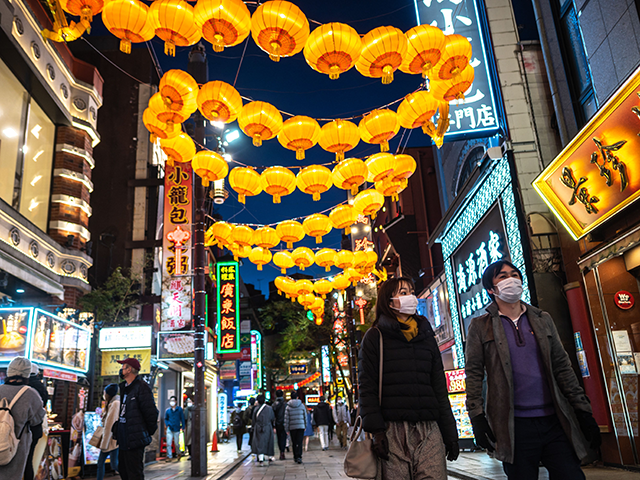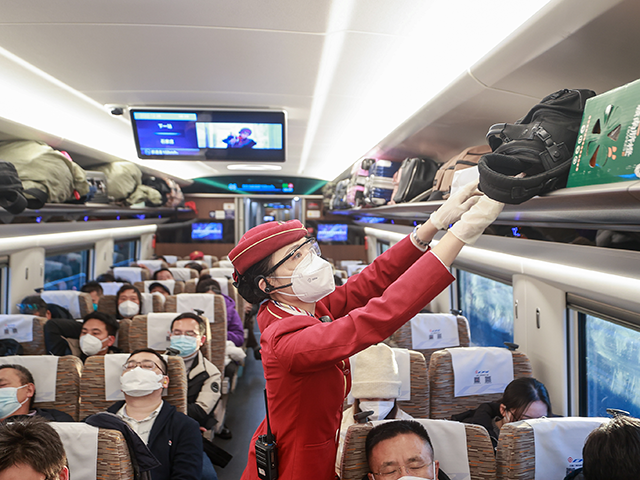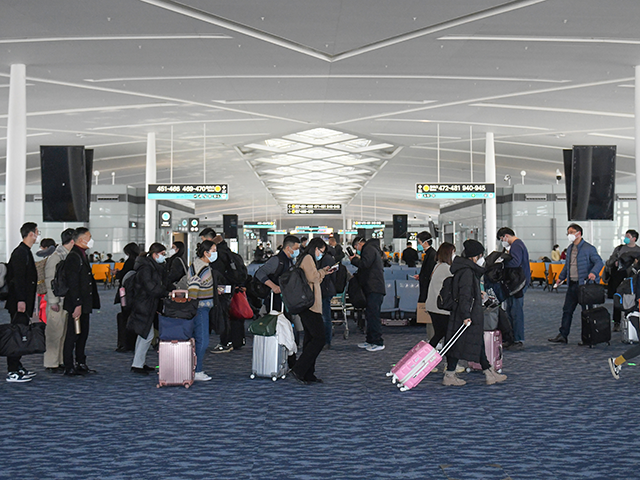China’s Ministry of Transportation reported on Saturday that over 42 million people have traveled by car, train, ship, and plane during the early days of the long Lunar New Year travel season, and over 2 billion trips will have been taken by the time the holiday is done, even though a massive wave of coronavirus infections is allegedly raging across China.
The South China Morning Post (SCMP) said it was no surprise travel would spike by 57 percent over the same period in 2022, since China’s strict “zero Covid” coronavirus controls have been entirely rescinded and all travel restrictions dropped. The final travel figures for 2023 are likely to be nearly double the totals from 2022, but still not much more than half of the 2019 peak.
Lunar New Year is technically observed over one week, from January 21 to 27 this year, but it is bracketed by a heavy travel season spanning 40 days. Both tourism and visits home to see family members are a staple of the biggest holiday on the Chinese calendar, producing the largest regular human migration on the planet – until 2020, when the coronavirus pandemic sharply curtailed travel.

People walk underneath festive lanterns in the Chinatown shopping street in Yokohama on January 16, 2022, ahead of the Chinese Lunar New Year. (PHILIP FONG/AFP via Getty Images)
Now that the government lifted some of its most onerous pandemic restrictions, the Chinese people are eager to resume traditional holiday travel. Many experts fear they may be bringing the world’s biggest ongoing coronavirus outbreak with them.
The SCMP quoted analysts who said travel for the 2023 Spring Festival would be kept lower by the relative shortage of migrant labor during the past year, which means fewer traveling workers returning home for the holidays. The analysts also suspected anxiety about the coronavirus wave would keep some people at home, anxiety stoked by some municipal officials warning bus and train workers to expect a spike in infections from their sick passengers.
Reuters spotted passengers packing into trains across China’s cities on Tuesday, potentially heralding both a fresh wave of infections and some much-needed vitality for the sluggish Chinese economy:
As travelers moved through stations in Shanghai, China’s largest city, some expressed optimism despite the risks.
“I am not worried about the virus. Because we are young, our immunity is okay,” 37-year-old migrant worker Zhou Ning told Reuters outside the Shanghai Railway Station as he prepared to head back to his home area in Bazhong in the northeastern province of Sichuan.
“Back in my hometown, there are many people who have tested positive, but I am not worried about it.”

A stewardess arranges suitcases on a high-speed train from Beijing to Nanchang on December 26, 2022 in Beijing, China. (Jia Tianyong/China News Service/VCG via Getty Images)
Reuters quoted Chinese airline data that showed at least 70,000 flights across China last week, which is about 80 percent of the typical traffic level before the pandemic.
The UK Guardian noted rural hospitals are stocking up on drugs and medical equipment to brace for a wave of infections from city travelers visiting their country relatives, and country folks heading to the big cities on vacation.
“In China’s most populous city, Shanghai, temporary night trains have been added to meet demand for travelers heading to the eastern Anhui province,” the Guardian said, quoting Chinese media reports. “Meanwhile, daily arrivals in the gambling hub of Macau exceeded 55,000 on Saturday, the highest daily arrivals since the pandemic began.”
EuroNews noted last week that despite relentless political attacks from the Chinese government, which derides travel restrictions upon its citizens as “unscientific” and unnecessary, the list of governments imposing coronavirus test requirements and other measures is steadily growing as Lunar New Year travel ramps up.
Much of the European Union is now imposing restrictions on Chinese travelers even though the EU itself has no official policy. Several countries that initially said they would not have special rules for visitors from China have reversed their position, including France and the United Kingdom.

COMMENTS
Please let us know if you're having issues with commenting.